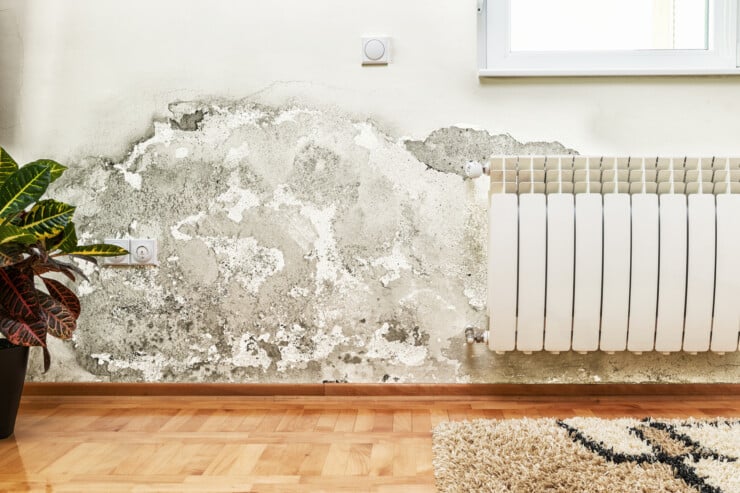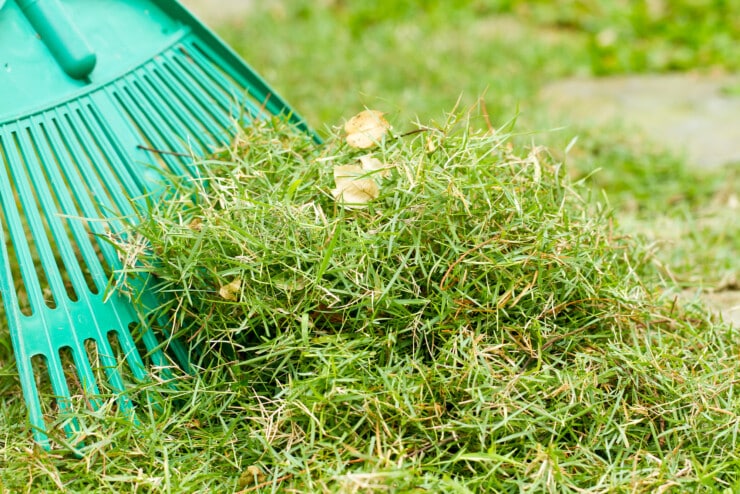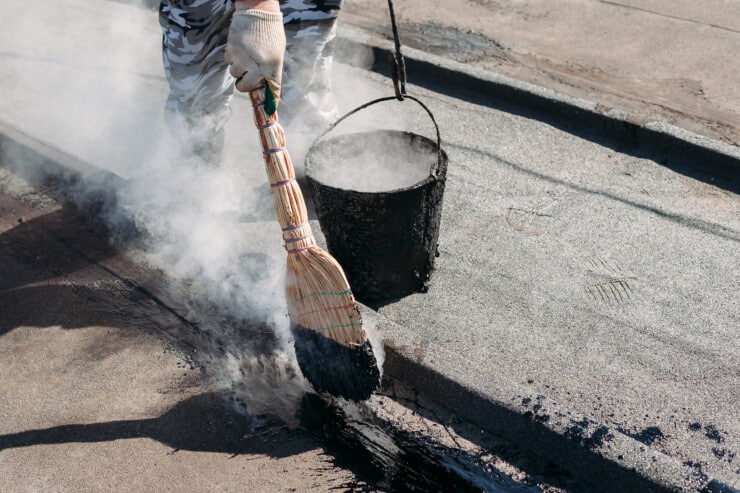Why Is There A Strange Fried Onions Smell In My House?
After a long day out, as soon as you enter your house, you are greeted with that distinct aroma of fried onions that fills the air.
You wrack your brain trying to recall if you even cooked anything with onions recently, but nothing comes to mind.
What could possibly be causing this strange odor?
Before you start questioning your sanity, let’s dive into some possible explanations for this mysterious aroma.
We all want our homes to smell fresh and inviting; however, sometimes we’re met with odors that seem to appear out of nowhere (and no one wants their sanctuary smelling like a greasy diner!).
Don’t worry though; we’ve got you covered!
In this article, we’ll explore common reasons why your home may have taken on an oniony scent and provide practical solutions for banishing these unwelcome smells.
Let us guide you towards becoming the master of your domain once more by conquering these pesky olfactory invaders.
Investigating Potential Culprits

It’s as if a bizarre onion-cooking festival has taken place in your home, and you’ve been left with the lingering scent of fried onions.
This unexpected olfactory adventure is likely causing some confusion and curiosity.
Fear not, for we are here to help you become a master detective when it comes to sniffing out the origin of this peculiar smell.
In our quest for culprit detection, let us begin by investigating potential sources that might be responsible for this strange aroma.
First things first, check your kitchen appliances and countertops for any signs of recently cooked food or leftover ingredients that could have produced the pungent odor.
Do not limit yourself solely to the obvious spots like stovetops or ovens; sometimes unusual sources can be found lurking in microwaves or toaster ovens as well!
Another tip is to examine nearby trash cans – they may contain discarded remnants of meals past that could still be releasing their potent scents into your living space.
Remember: no stone should be left unturned on this mission towards mastery over mysterious smells!
As you continue your search, broaden your horizons beyond just the realm of cooking tools and spaces.
Consider vents, air filters, or even hidden critters who might also be contributing to the funky fragrance wafting through your abode.
Don’t forget about those sneaky household items such as candles or air fresheners which might bear an uncanny resemblance to fried onions at times.
By keeping an open mind and exploring all possibilities, you’ll soon uncover the truth behind this enigmatic eau de onion and restore harmony within your humble dwelling.
Addressing Hidden Mold Or Mildew Issues

First, let’s talk about how to identify hidden mold or mildew.
Then, we can discuss the best remediation strategies to deal with it.
Once we’ve identified the source of the problem, we’ll need to decide the best course of action.
Finally, we’ll have to put those strategies into practice to make sure the problem doesn’t come back.
Identifying Hidden Mold Or Mildew
Have you ever wondered what that odd smell in your home might be? You’re not alone.
Many people experience the unpleasant surprise of discovering hidden mold or mildew lurking behind their walls, under their floors, or even within their air conditioning units.
Identifying these sources can help alleviate mold allergies and ensure a healthier living environment for you and your family.
To become a master of mold detection, start by paying close attention to any musty odors in your home.
Mold often gives off an earthy, damp smell that may remind you of rotting leaves or wet soil. If you notice this scent consistently, it’s time to investigate further.
Look for visual signs of mold growth such as discolored patches on walls or ceilings, peeling paint, and wallpaper loosening from surfaces.
Don’t forget to check less visible areas like inside cabinets, behind appliances, and around plumbing fixtures where moisture tends to accumulate – a prime breeding ground for mold!
Knowledge is power when it comes to mildew prevention; knowing its favorite hiding spots will help keep it at bay.
Now that we’ve talked about identifying the presence of mold or mildew let’s discuss addressing the issue itself.
First things first: if you suspect there’s extensive mold growth throughout your home (especially in hard-to-reach places), consider hiring a professional who specializes in mold remediation services.
They’ll have both the expertise and equipment necessary to tackle large-scale infestations safely and effectively.
However, small amounts of surface-level mildew can generally be removed with DIY methods involving water, vinegar or bleach solutions applied directly to affected areas.
Remember always to wear gloves during cleanup efforts and avoid inhaling fumes from cleaning products whenever possible – safety should come first when dealing with potentially hazardous substances like mold spores!
Remediation Strategies For Mold Or Mildew
So, you’ve identified the hidden mold or mildew in your home and tackled any small-scale issues on your own.
Now let’s dive into remediation strategies to help ensure that pesky fungus doesn’t make a comeback!
One of the key components to keeping mold at bay is implementing effective mold prevention tips, which can save you time, effort, and money down the road.
To stay one step ahead of mold growth, start by addressing moisture issues within your home – this means fixing leaks promptly, maintaining proper ventilation (especially in bathrooms), and using dehumidifiers if necessary.
Consider incorporating mildew-resistant materials such as paint and upholstery when redecorating.
These products are specifically designed to resist fungal growth and keep your living environment fresh and clean.
Don’t forget to regularly inspect those hard-to-reach areas we mentioned earlier for signs of recurrent mold activity!
By staying proactive with mold prevention measures and utilizing mildew resistant materials throughout your home, you’ll be well on your way toward achieving mastery over hidden molds and ensuring a healthier living space for yourself and loved ones.
Remember: vigilance is key in combating household fungi – so don’t let them sneak up on you again!
Examining Your Home’s Ventilation
If you’ve been experiencing a strange fried onions smell in your home, it’s time to take action and examine your house’s ventilation system.
Proper air circulation is essential for maintaining good indoor air quality and reducing unwanted odors.
To achieve this, there are some key areas in our homes that require special attention.
Check the filters on your heating or cooling systems; dirty filters may circulate unpleasant odors throughout the house.
Inspect exhaust fans in bathrooms and kitchens; ensure they’re clean and functioning correctly to eliminate any scent-causing moisture buildup.
Look out for blocked vents or ducts that might restrict airflow, trapping smells inside the rooms.
Your quest for mastery will lead you to explore various options for ventilation improvement and air quality control in your home.
Upgrading existing equipment like fans or installing new ventilators can significantly improve overall airflow.
Consider investing in an air purifier with odor-reducing capabilities, such as activated carbon filters, which help neutralize stubborn scents by adsorbing them.
By becoming more aware of these potential solutions, you’ll be better equipped to handle challenges related to indoor air pollutants and odors – ensuring your living space remains fresh, healthy, and inviting at all times.
Don’t stop here!
Use this newfound knowledge as a springboard towards creating a comfortable haven free from unwelcome scents.
Through continuous evaluation of your home’s ventilation system and implementing necessary improvements, you’ll not only banish those pesky fried onion smells but also gain valuable know-how about maintaining optimal indoor conditions.
Embrace the opportunity to master every aspect of your environment so that both you and your loved ones can fully enjoy the comfort and serenity of a well-ventilated home without distractions from lingering odors.
Identifying Problematic Appliances

I’d start by inspecting the plumbing to see if any leaks could be causing the smell.
Next, I’d test all the electrical outlets to make sure none of them are overheating.
After that, I’d check the furnace and AC systems to see if any of them are malfunctioning.
I’d also look to see if any debris is blocking the vents.
If nothing seems to be the issue, I’d call a professional to take a look.
It’s important to investigate these appliances and systems to determine the source of the strange smell.
Inspecting Plumbing
Imagine you’re walking around your house, trying to pinpoint the source of that peculiar fried onions odor.
You’ve checked all appliances and still can’t find where it’s coming from. Then it hits you – maybe it’s time to inspect the plumbing!
Plumbing maintenance is crucial in ensuring a healthy home environment, as pipe leaks and other issues can lead to unpleasant smells and even damage to your property.
Armed with determination and an eagerness for mastery, you begin methodically examining every nook and cranny of your home’s plumbing system.
By doing so, not only will you be able to potentially identify any problematic areas causing the strange smell but also learn more about how your home functions on a deeper level.
In this quest for knowledge, remember that there are many resources available online or at local hardware stores that can aid in diagnosing common plumbing problems such as pipe leaks or clogged drains.
As you continue investigating each section of your plumbing system, don’t forget to keep safety as a top priority.
Ensure that water valves are turned off before attempting repairs and never hesitate to consult professional help if needed.
After all, while taking matters into our own hands may give us immense satisfaction when successfully executed, knowing when to rely on expert assistance is equally important in maintaining a well-functioning household without further complications.
Testing Electrical Outlets
Now that you’ve tackled the plumbing issue, it’s time to level up and delve into another home maintenance task: testing electrical outlets.
Electrical maintenance is just as crucial as plumbing in ensuring a safe and well-functioning home environment.
Have you ever wondered if your outlets are operating properly or suspected one might be faulty?
Outlet safety should never be neglected, so let’s embark on this electrifying journey together – pun intended!
Testing your electrical outlets can provide valuable insights about their performance and help identify any potential hazards.
You’ll not only become more informed about the inner workings of your home but also gain confidence in addressing common household issues.
Remember, there’s always an opportunity for personal growth when we venture beyond our comfort zones!
So grab that outlet tester from the hardware store (or order online) and follow all safety practices while exploring this new realm of knowledge.
As you methodically examine each outlet, don’t forget to take note of any irregularities or concerns.
This information will come in handy when discussing with professionals or conducting further research on how to address these issues.
Keep pushing forward on this quest for mastery; after all, who doesn’t want a safer and better-optimized living space?
And who knows what other fascinating skills await discovery once you conquer the world of electrical maintenance!
Investigating Furnace/AC Systems
Now that you’ve mastered the art of testing electrical outlets, it’s time to crank up the heat and venture into another essential aspect of home maintenance: investigating furnace and air conditioning systems.
Knowing how to identify potential issues with these appliances can save you from sweltering summers or freezing winters while ensuring your family is breathing clean air all year round.
Start by checking your furnace filters regularly – they play a crucial role in keeping dust particles and allergens at bay.
A dirty filter not only reduces efficiency but could also damage your system if left unchecked.
Don’t forget about duct cleaning, either!
Regularly cleaned ducts prevent debris buildup, promote better airflow, and contribute significantly to maintaining optimal indoor air quality.
So dive headfirst into this new challenge; after all, there’s no better feeling than conquering yet another dimension of home maintenance expertise!
As you delve deeper into learning about furnaces and AC systems, remember that every step brings you closer to creating an even safer and more comfortable living environment for you and your loved ones.
Implementing Effective Odor Removal Strategies

Now that you’ve identified the possible culprits causing the strange fried onions smell in your house, it’s time to take action and restore a pleasant atmosphere.
Think of this as an art restoration project – just like how experts bring life back to old paintings by carefully removing years of dirt and grime, you’ll be doing the same for your home.
To begin this olfactory masterpiece, consider using odor neutralizers.
These products work wonders when it comes to tackling strong smells.
They contain ingredients that react with and eliminate odor molecules instead of merely masking them.
Some common types of odor neutralizers include sprays, gels, or even candles formulated specifically for eliminating unpleasant odors.
Be sure to choose one that best suits your needs and preferences, whether it’s scented or unscented.
Remember though, these are temporary solutions; they help alleviate symptoms but don’t address the root cause.
Another tool in your arsenal can be air purifiers.
While not explicitly designed for odor removal, many models have built-in filters that capture particles responsible for nasty smells.
For example, activated carbon filters excel at trapping volatile organic compounds (VOCs), which often contribute to foul odors emanating from cooking or cleaning chemicals.
Similarly, HEPA filters can catch larger particles like dust mites or pet dander that might exacerbate any lingering stench issues.
By investing in an air purifier with suitable filtration capabilities, you’re taking a step towards creating a comfortable living environment where both you and your nose will feel right at home—no more cringing every time you enter a room!
Frequently Asked Questions
Can certain foods or cooking methods cause a lingering fried onion smell in my house?
Absolutely, certain foods and cooking methods can cause a lingering fried onion smell in your house.
When you’re frying onions or using onion alternatives such as shallots, leeks, or garlic, the distinct aroma produced by these ingredients tends to stick around for quite some time.
This is due to the sulfur compounds that are released during the process of cooking.
To banish this odor from your home and regain control over your kitchen’s atmosphere, make sure to use proper ventilation while cooking and consider employing various odor removal techniques like simmering vinegar on the stove or leaving out bowls of baking soda to absorb those pesky smells.
Embrace your inner culinary mastermind by experimenting with different dishes without fear of that unwanted scent taking up residence in your space!
Are there any health concerns associated with a persistent fried onion odor in my home?
While persistent fried onion odors in your home may be unpleasant, they generally do not pose significant health concerns.
However, it’s essential to identify any potential odor sources and address them promptly, as some smells could indicate underlying issues like mold or poor ventilation.
To achieve smell elimination and maintain a healthy living environment, ensure proper kitchen ventilation while cooking and regularly clean surfaces where grease buildup can occur.
Can the smell of fried onions indicate a gas leak or another serious issue?
Imagine coming home after a long day at work, only to be greeted by the unsettling smell of fried onions lingering in the air.
While it may not seem like an immediate cause for alarm, there’s a possibility that this odor could indicate a gas leak or another serious issue within your home.
Gas leaks are dangerous and can lead to fires or even explosions if left unchecked.
The scent of fried onions might actually be the result of natural gas additives called mercaptans, which are added to give usually-odorless gases a detectable smell for safety purposes.
In such cases, prioritizing odor elimination is essential; first and foremost, you should take steps to identify the source of the problem and address any potential hazards.
How can I prevent the fried onion smell from permeating my home in the first place?
To prevent the fried onion smell from permeating your home in the first place, consider using onion alternatives like garlic, shallots, or leeks for a milder aroma while still adding flavor to your dishes.
Make use of odor absorbers such as baking soda or activated charcoal by placing them around your kitchen and other areas where the smell may linger.
To further ensure a fresh-smelling environment, maintain proper ventilation during cooking sessions by opening windows and using exhaust fans.
Are there any long-term effects on my home or belongings due to a persistent fried onion odor?
Imagine walking into a museum, only to be greeted by the persistent smell of fried onions.
Over time, this odor can seep into the very fabric of your home and belongings – just like an unwelcome exhibit in that hypothetical museum.
The good news is that there are effective ways to combat these long-term effects through proper odor removal techniques and investing in air purifiers for your living space.
By taking control of the situation and using these tools, you can prevent those pesky onion fumes from becoming permanent residents in your home.
Final Thoughts
It’s important to be aware that certain foods and cooking methods can indeed cause a lingering fried onion smell in your home.
However, don’t let the fear of a persistent odor keep you from enjoying your favorite dishes – as they say, where there’s smoke, there’s fire, but this isn’t always a bad thing.
Just make sure to take proper precautions when cooking and address any potential health concerns or hazards associated with the smell.
By doing so, you’ll ensure both your home and its inhabitants remain safe and sound while still savoring those deliciously aromatic meals.







